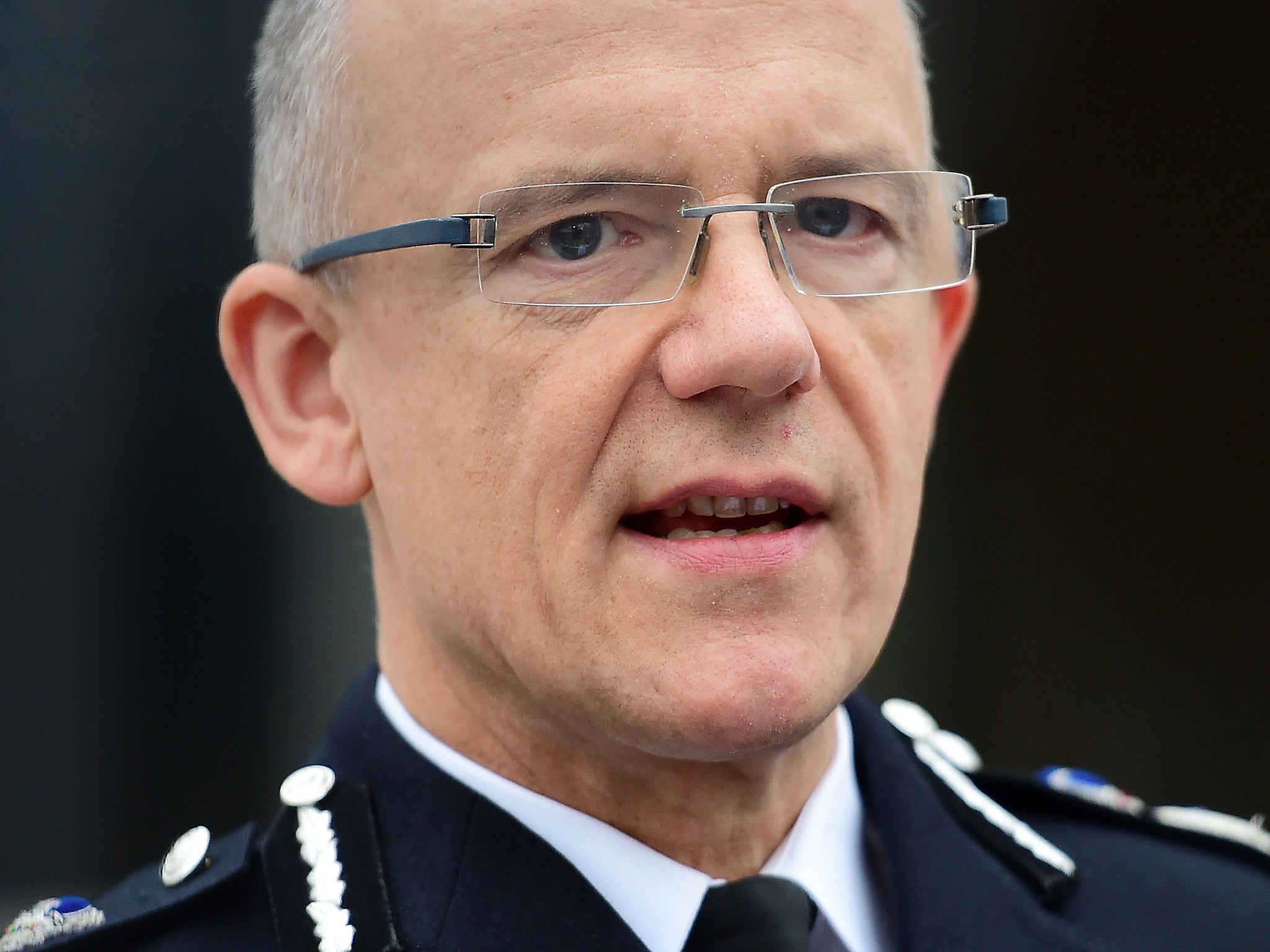New laws needed to tackle ‘shocking and dangerous’ scale of extremism, review finds
‘Watershed moment’ for Britain as young people are radicalised and different forms of extremism grow

New laws are needed to tackle the “shocking and dangerous” scale of extremism in the UK, the former head of counterterrorism has said.
Sir Mark Rowley and the Commission for Countering Extremism found hateful groups of all kinds are “operating with impunity” by exploiting gaps between existing hate crime and terrorism legislation.
A review published on Wednesday found that such extremists were able to glorify terrorism and stir up racial hatred without prosecution, and that some terror attackers such as the London Bridge ringleader Khuram Butt, could have been arrested earlier if tighter laws had been in place.
Sir Mark said urgent change was needed to fill a “dangerous legal void” that was creating a growing pool of radicalised people for terrorists to recruit from.
“The nature and scale of extremism that is currently lawful is shocking and dangerous,” he added.
“The challenge has been magnified by the online world over the past decade and our laws have not kept pace.”
The review called for the government to build a new legal and operational framework to combat “hateful extremism” that falls short of existing laws.
Its findings were supported by former prime ministers David Cameron and Tony Blair, the current head of UK counterterrorism policing, Neil Basu, and faith leaders including the Archbishop of Canterbury, the chief rabbi of Britain and chair of the Mosques and Imams National Advisory Board.
The report said that powers to ban groups who “intentionally and persistently engage in hateful extremism” – but cannot be captured by current terror laws – should be considered, as well as further restrictions on the possession of extremist material.
The report said loopholes currently allowing people to glorify terrorism and stir up racial hatred without prosecution should be removed by creating new criminal offences.
It also called for powers enabling law enforcement, regulators and the government bodies to tackle hateful extremism, and for the new Online Harms Bill to prioritise the issue.
Sara Khan, the government’s independent adviser on extremism, said the current situation was “untenable”.

“Not having a legal framework is no longer an option, we are at a watershed moment and the problem is getting worse,” she told a press conference.
“It really is a question now of whether the government has the political will to address this issue.”
Ms Khan, who leads the Commission for Countering Extremism, said extremist groups and rhetoric created a “climate conducive to terrorism” without directly involving themselves with violence.
She cited hate preacher Anjem Choudary as an example, saying he was believed to have motivated between 70 and 100 people into terrorism but was not prosecuted until 2016, and only for the specific offence of inviting support for Isis rather than his long-running activities.
“If an Anjem Choudary-type figure emerged tomorrow, we would still find ourselves in the same position,” Ms Khan warned.
“For a long time the government has tried to fix this problem through the lens of terrorism legislation, and our argument is that is a flawed and failed approach.”
She said that as well as worsening the risk of people being drawn into terrorism, extremist groups were creating divisions in society, undermining democracy and victimising perceived opponents.
Sir Mark said that when he retired as the head of UK counterterrorism policing in 2018, he was most concerned about extremism.
“What struck me was an ever-growing pool of people being radicalised that terrorists could recruit from,” he added.

“No operational bodies that have extremism as a priority, it is all dealt with tangentially and that’s why it has been growing.”
The government tried to create an extremism bill in 2015 but the proposed legislation was aborted because of widespread opposition and the inability to find a legally acceptable definition of extremism.
The Commission for Countering Extremism said using its 2019 definition of “hateful extremism”, which has not yet been adopted by the government, would create a narrowed focus that would not trespass on freedom of speech.
It defines hateful extremism as including persistent hatred directed at “out-groups”, which makes the moral case for violence or is likely to cause harm to individuals, communities or wider society.
Ms Khan said the framework would be “ideologically blind” and cover Islamists, the far right, far left, incel subculture and other extremisms.
Sir Mark said the report was “not suggesting we should use the law to capture anything that the majority of people may feel is an unsavoury opinion”, and that the proposed changes would still allow robust debate, contentious comment and offence.
“It’s time to roll sleeves up and grapple with this,” he added. “The consequences of failure are pretty bleak, the trajectory is pretty concerning. Increased numbers of young people are being radicalised.”
The home secretary, Priti Patel, has been briefed on the report and is considering the findings.
Baroness Williams, the minister for countering extremism, said: “The government is committed to tackling those who create fear and division in our communities, radicalise others and support terrorism.
“I thank Ms Khan and Sir Mark for their report and the Home Office is considering their findings with great interest.”
Join our commenting forum
Join thought-provoking conversations, follow other Independent readers and see their replies
Comments



Bookmark popover
Removed from bookmarks